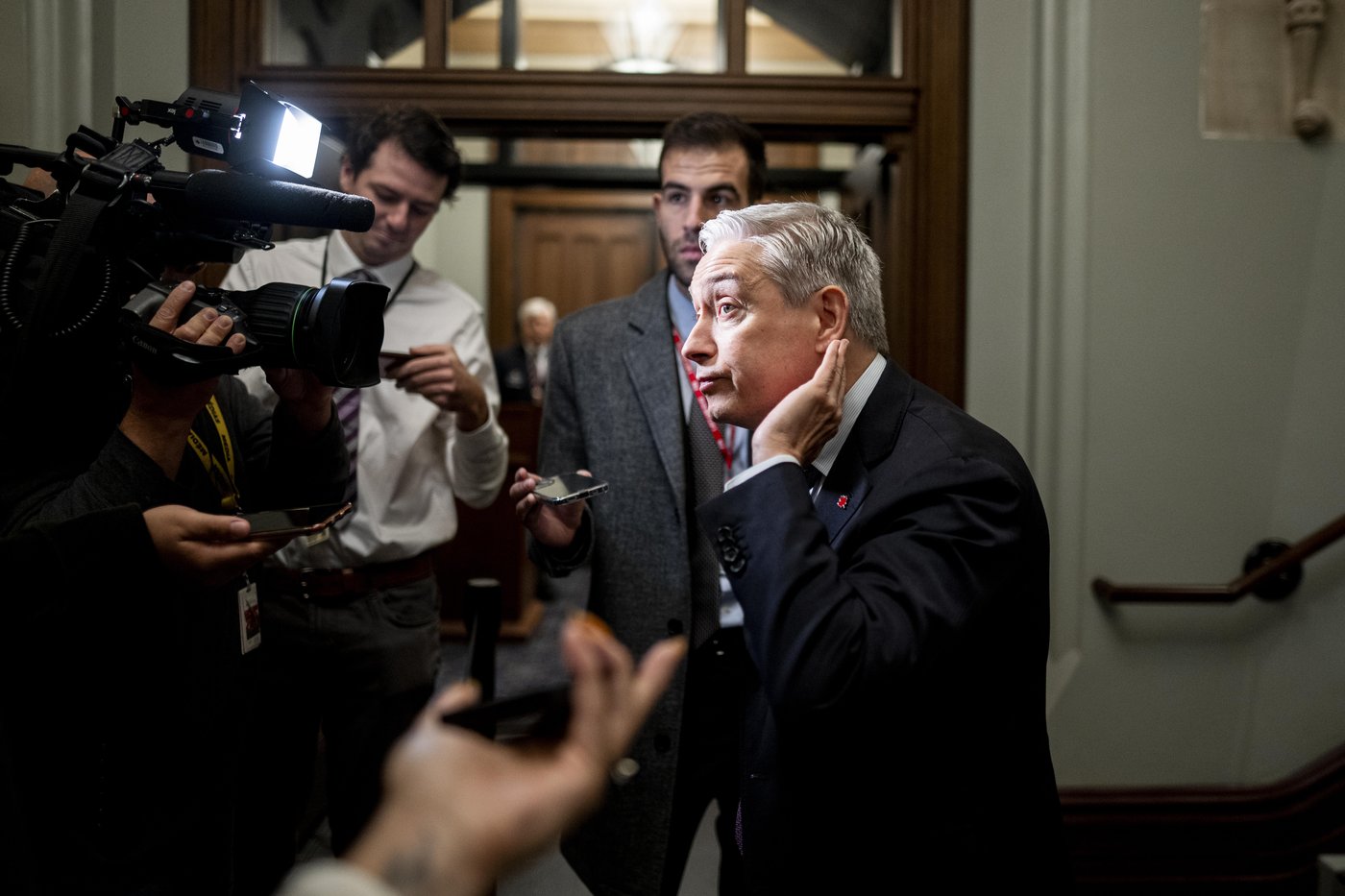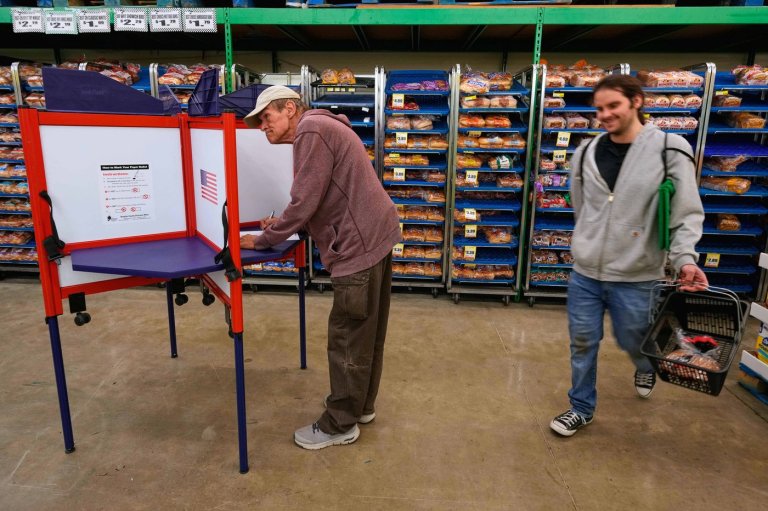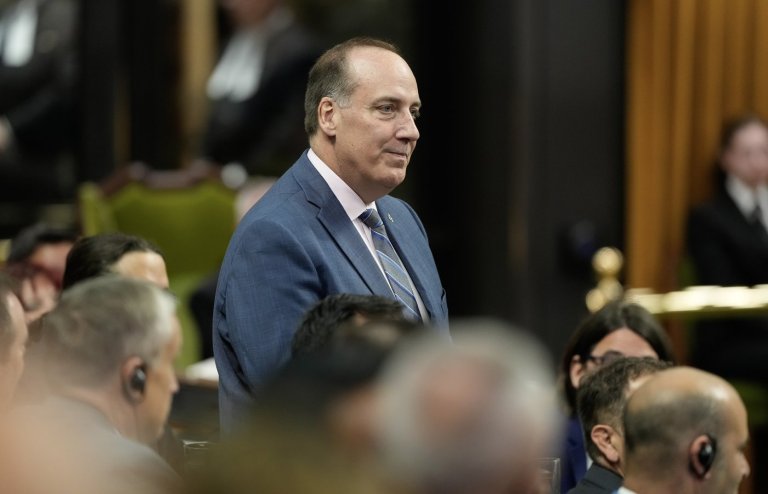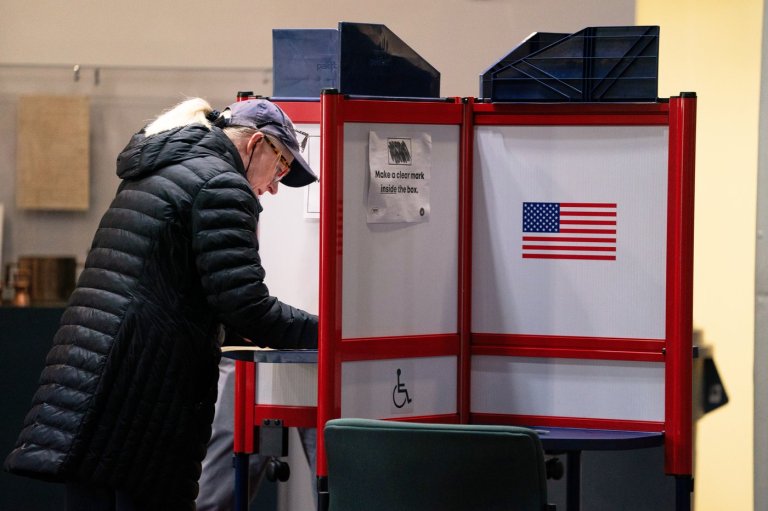With Carney’s budget tabled, the countdown to a make-or-break confidence vote begins

OTTAWA — While Finance Minister François-Philippe Champagne vowed there would be no surprises in the federal budget he tabled Tuesday, the biggest surprise of the day may have come from the Official Opposition bench.
Nova Scotia MP Chris d’Entremont, a longtime Conservative both provincially and federally, resigned from the Tory caucus Tuesday and joined the Liberals.
In a statement, he said he looks forward to working with the prime minister to “build strong community infrastructure and grow a stronger economy.”
His move puts the Liberals within two votes of being able to pass the budget on their own and avoid the prospect of a holiday election.
The Liberals will still need a few opposition votes or abstentions to pass a key confidence test when the budget comes up for vote later this month.
If MPs vote down the budget, they will bring down the government with it, likely triggering another election.
Prime Minister Mark Carney has hinted he’d be ready to fight an election on the budget, telling reporters over the weekend that he’s confident this is the right budget for the moment.
In his speech to Parliament on Tuesday afternoon, Champagne sought to draw a contrast with the Conservatives by saying the budget chooses generational investments over scaling back the supports on which Canadians rely.
Opposition party leaders lined up to stake out their positions after the speech.
Conservative Leader Pierre Poilievre said his caucus — now down to 143 members — will be voting against the budget.
“This government is the most expensive in Canadian history,” he said, adding Conservatives were calling for “an affordable budget.”
He had demanded that the Liberals keep the deficit under $42 billion, cut income taxes and eliminate the industrial carbon price in exchange for Conservative support.
The projected deficit is close to double that benchmark — at $78.3 billion for this fiscal year — and the industrial carbon price is being strengthened, not cut.
“The prime minister has broken every promise he made just seven short months ago,” Poilievre said in the House of Commons.
Green Party Leader Elizabeth May said the budget won’t get her support without changes.
“There are several days in which this budget could get negotiated or amended,” she said.
“I’m surprised that Mr. Carney hasn’t reached out, or more of his ministers haven’t reached out to say, ‘What would it take to get the Greens to vote for this budget?'”
There’s only one Green vote on offer. May pointed out that, especially now, every vote counts.
Interim NDP leader Don Davies had said his seven-member caucus hasn’t ruled out abstaining from the budget vote.
On Tuesday, Davies said New Democrats would take time to study the budget and consult with stakeholders.
He said he’s pleased to see $51 billion in infrastructure funding, co-operative housing and a mention of an east-west electricity grid.
“On the negative side, you have 40,000 public sector job cuts,” he said.
Champagne told reporters Tuesday that there’s something for each of the political parties in the budget, including “generational investments” in affordable housing and new funding for health infrastructure.
“They will have to really think about the position they’re going to take,” he said in French.
Bloc Québécois Leader Yves-François Blanchet said he didn’t see how his caucus could support the budget. He called it a “red Conservative budget” that could have come from former prime minister Stephen Harper.
“There’s nothing for Quebecers in there,” he said.
Blanchet had laid out a list of demands for the government that included increasing old-age security payments and boosting health transfers to the provinces.
This report by The Canadian Press was first published Nov. 4, 2025.
Join the Conversation!
Want to share your thoughts, add context, or connect with others in your community?
You must be logged in to post a comment.

















